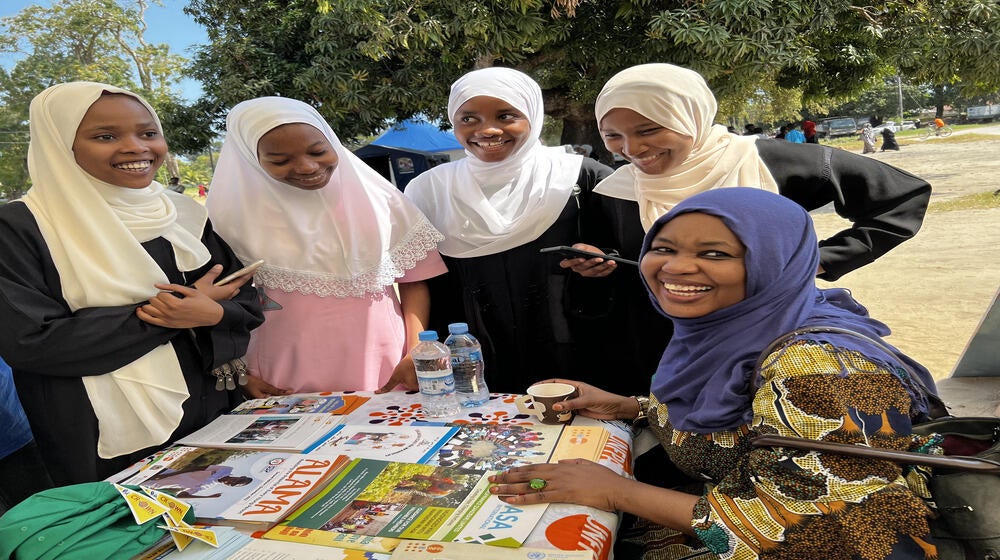The power of youth lies in green skills towards a sustainable world...
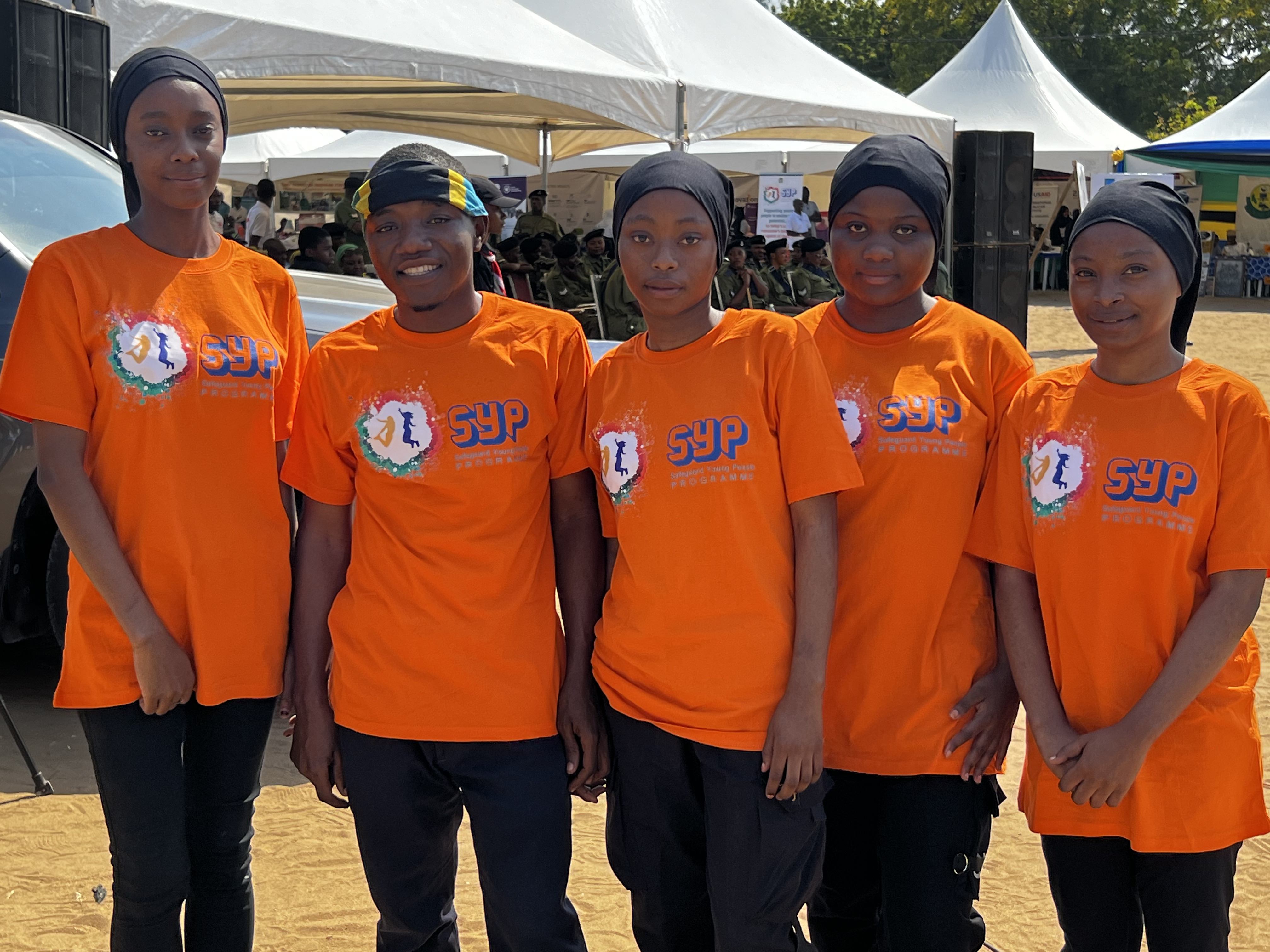
Today, The United Nations Sexual and Reproductive Health Agency, the Revolutionary Government of Zanzibar and the Government of the United Republic of Tanzania, stakeholders, young people and other partners commemorate the International Youth Day at Maisara ground in Unguja - Zanzibar, which provides with an opportunity to reflect on the importance of youth development issues within the Tanzanian context, and how the country can fast-track progress towards achieving national priorities and it’s sustainable development goals, by harnessing the full potential of women, girls and young people. The world is embarking on a green transition – a shift towards an environmentally sustainable and climate-friendly planet, which is critical not only for responding to the global climate crisis, but for achieving the Sustainable Development Goals.
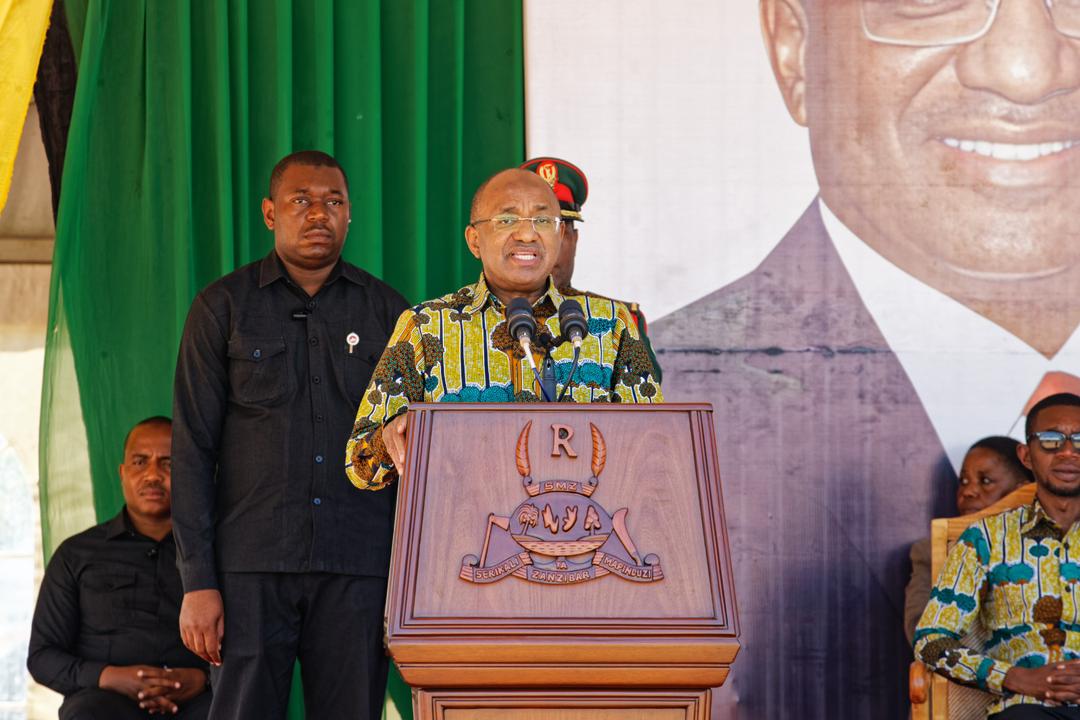
“ let me use this opportunity to call on various institutions and stakeholders of Youth Development and Environment to continue investing in strengthening education and the Green Economy for Youth. The goal should be to achieve the implementation of the Sustainable Development Goals (SDGs) and to strengthen the participation of young people in caring for, preserving and developing our environment” said Dr Hussein Ali Mwinyi, President of Zanzibar and the Chairman of the Revolutionary Council.
A successful transition to a greener world will depend on the development of green skills, including technical knowledge to enable the use of green technologies in occupational settings, as well as a range of values and attitudes to facilitate environmentally sustainable decisions in life as well as in work. Green skills have heightened importance for young people. For starters, climate change disproportionately impacts adolescents and youth. It most heavily affects poorer countries, many of which have the largest youth populations. These countries contribute little to global greenhouse gas emissions and also have the most limited capacity to adapt to the climate crisis.
Further, young people will suffer the impacts of climate change for longer than any other population group. Their reproductive lives will be particularly affected, with the warming planet expected to worsen maternal and neonatal health outcomes for future generations. With this in mind, the theme for International Youth Day this year is Green skills for youth: Towards a sustainable world. UNFPA champions the rights of young people and works to enable them to fulfill their potential. Girls in particular must be among the new generation of leaders building our sustainable future, as they are the most vulnerable to the impacts of climate change.
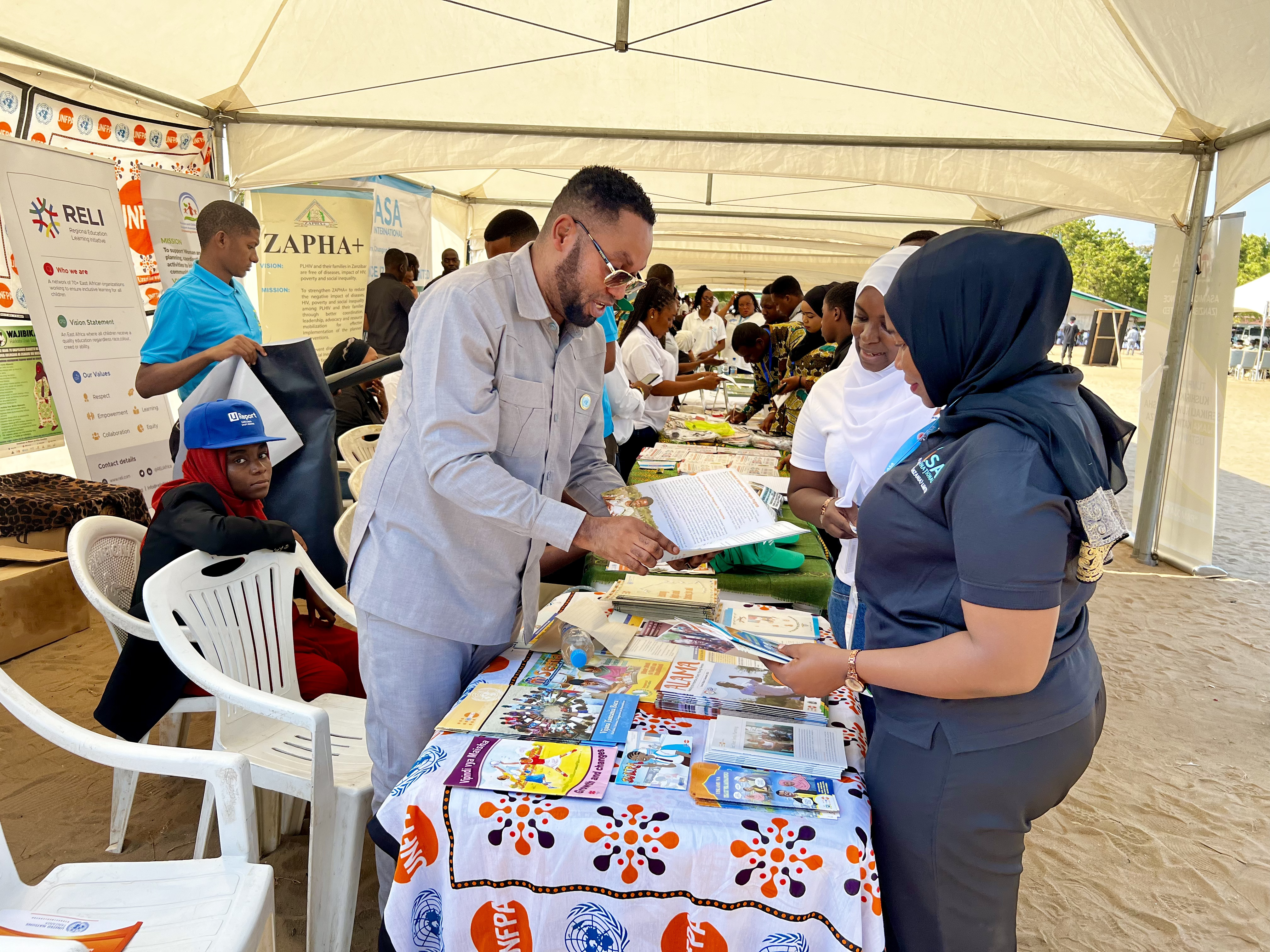
In national commitments to increase green skills, men and boys are more frequently recognized as change agents than are women and girls. As world leaders call for a future of green skills among youth, girls must not be excluded. Comprehensive sexuality education provides young people with valuable information and skills related to climate change, such as how to identify its impacts on sexual and reproductive health. Investment in comprehensive sexuality education and empowerment programmes is needed to build the skills of young leaders. Young people who develop green skills will also be better prepared to enter workforces amid a growing share of green jobs and opportunities – demand for green skills is outpacing supply.
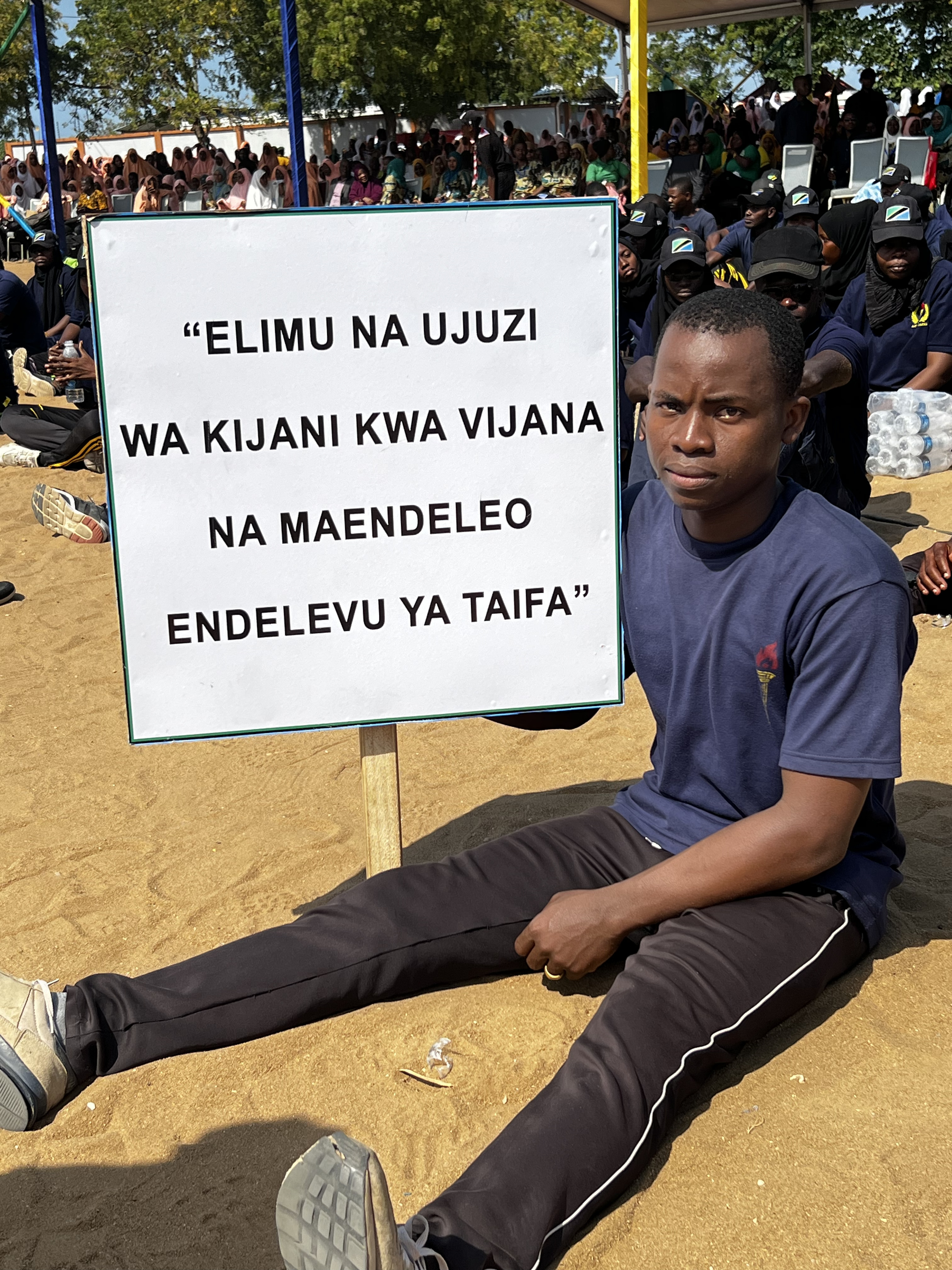
Policy choices made today will profoundly affect future generations. Young people must be able to shape these decisions based on their rights and priorities. Young innovators are already defining a sustainable green future, contributing to efforts to adapt to climate change, including by identifying the needs of the most vulnerable. Inclusive and female-centred input must be prioritized to ensure that the needs of women and girls and other marginalized groups are addressed.
Youth leadership and youth participation are key in decision-making and development processes. UNFPA recognizes that youth, when empowered and provided with the right opportunities, are effective drivers of change. Promoting youth leadership and youth participation is key to UNFPA’s work. In collaboration with the Government of the United Republic of Tanzania and development partners, the UN is supporting youth with access to education, tools, and services and encourages their participation in development processes.
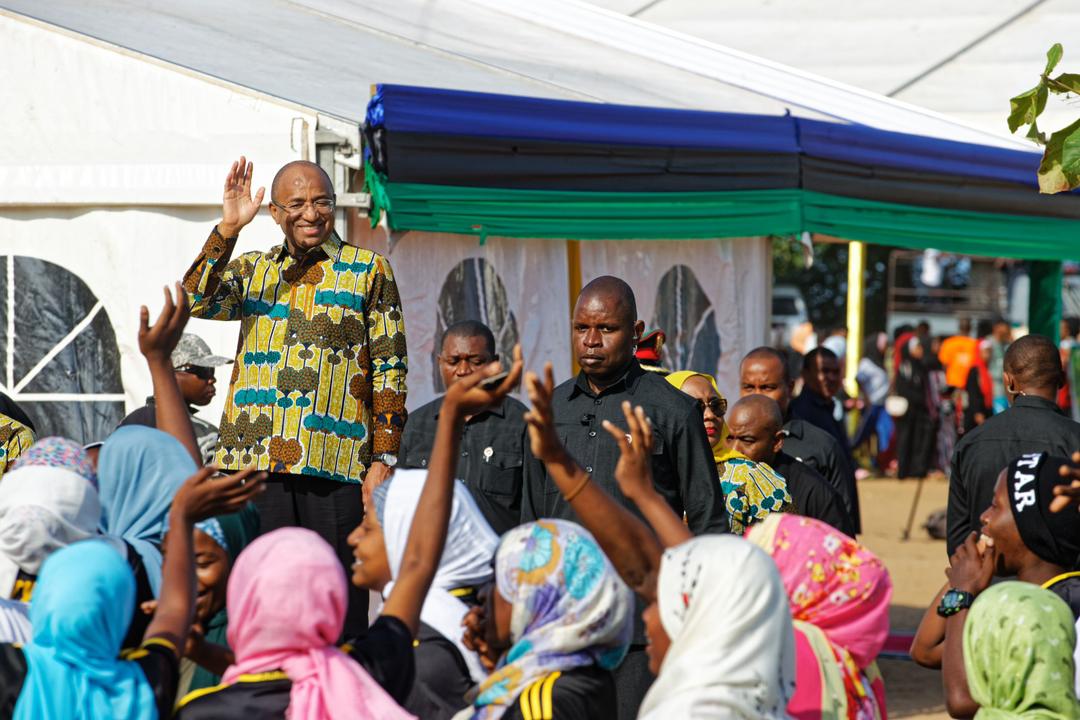
“In strengthening Health for the Youth, the Government of Zanzibar through the Ministry of Health in collaboration with the United Nations Population Fund (UNFPA) has established and developed a total of 13 Youth Friendly Services Centers #YFS for the Youth in all the Districts of Zanzibar. These YFS centers continue to provide services to ensure the good health and well being of our youth” said Dr Hussein Ali Mwinyi, President of Zanzibar and the Chairman of the Revolutionary Council.
In partnership with the Prime Minister’s Office in the Mainland and the Ministry responsible for Youth in Zanzibar, the UN is supporting the development and revision of policies, strategies and frameworks aimed at strengthening the delivery of effective services for youth. Our enabling environment for youth includes support for capacity development in programmes to reach marginalized adolescents and deliver community-based life-skills that promote human rights and gender equality. These programmes support integration of participation, leadership and entrepreneurship to youth groups and youth-led organizations to build capacity to enhance their social-economic development.
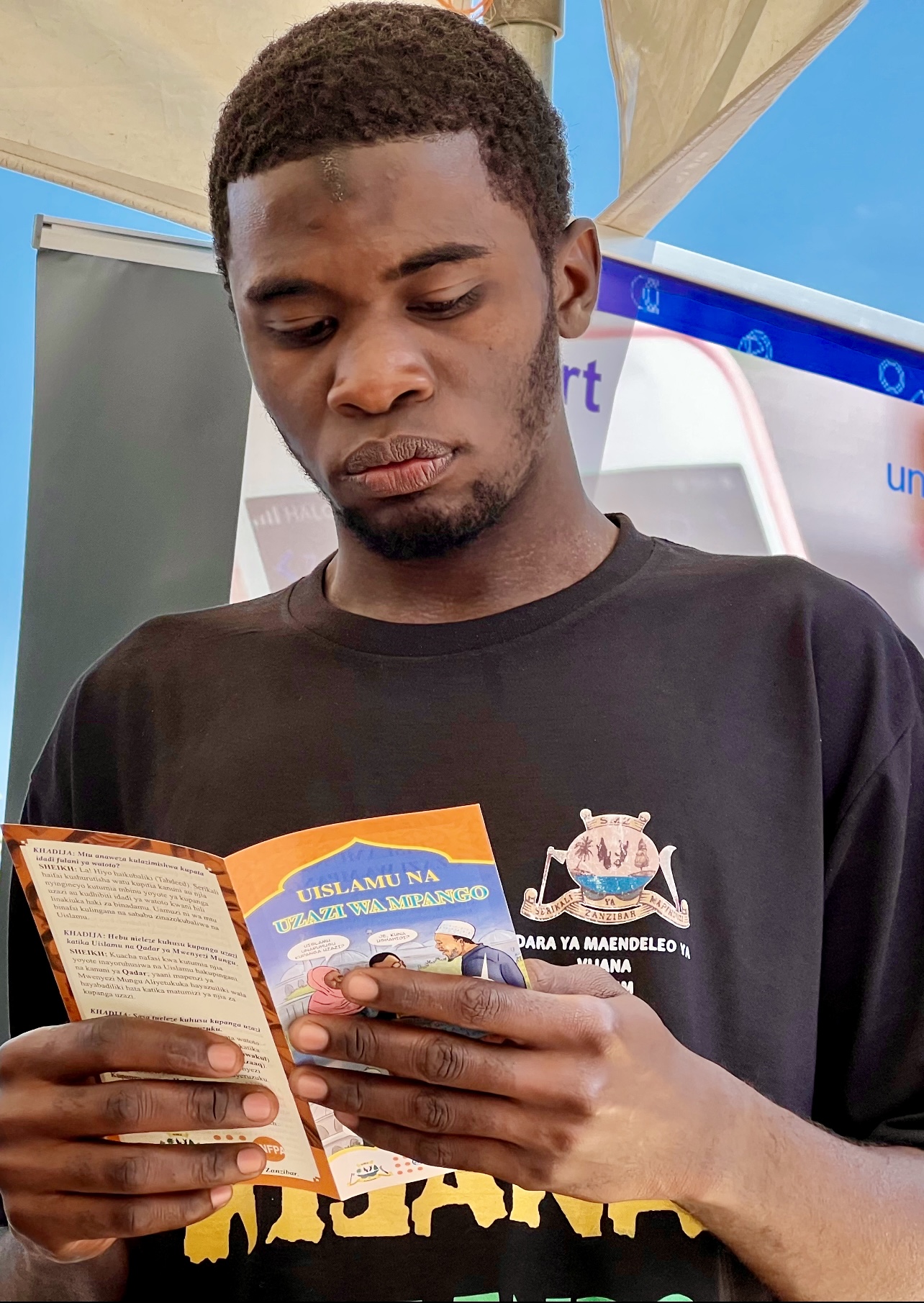
The mission of UNFPA is to deliver a world where every pregnancy is wanted, every child birth is safe and every young person's potential is fulfilled. This requires and recognizes the importance of investing in youth friendly services and programmes. Some investments by UNFPA, with development partners include:
- Peer educator programme on Sexual and Reproductive Health and Rights that reached over 125,000 youth.
- Establishment of 103 health facilities, UNFPA and partners supported enhanced access to emergency obstetric and newborn care and youth-friendly services.
- Entrepreneurship, leadership and life skills education to build young people’s capacity, commitment, and confidence, when presented with the opportunity to lead and participate in decision making.
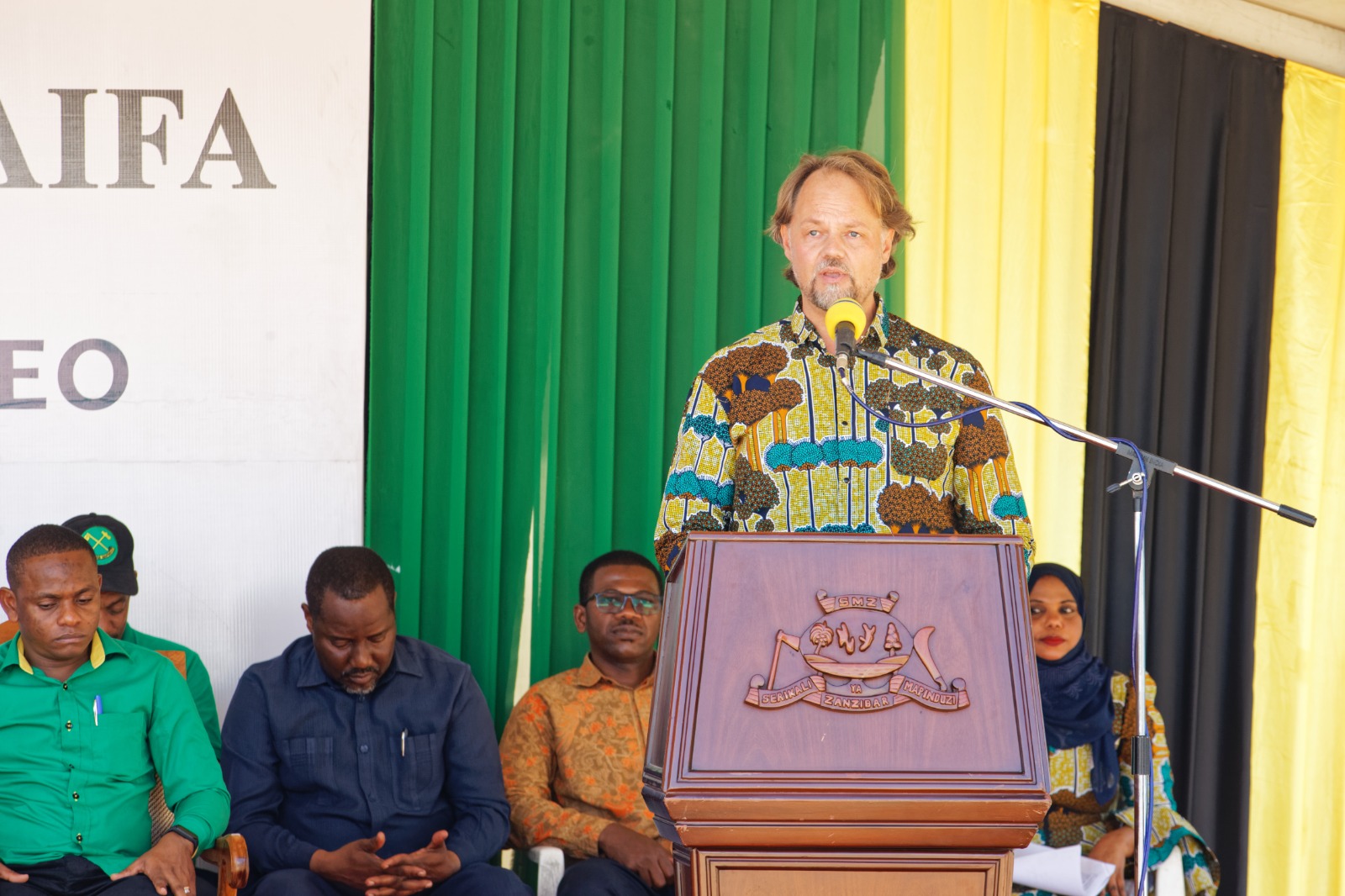
“We recognize the urgency of further investment in youth programming. Almost 50% of Tanzanians are under 18 years and 62% under 25 years old. With this dynamic and growing youth population, we recognize that access to resources for education, employment, and sexual and reproductive health need to be expanded. We must all invest in youth, in order to guarantee rights and choices for all, and enable socio-economic growth”. Said Mark Bryan Schreiner, UNFPA Representative in the United Republic of Tanzania.
The IYD Climax in Zanzibar bring together a total number of 1000 youth and youth development stakeholders from youth led/focused CSOs, youth leaders, youth from education institutions, representatives from government institutions, UN, Development Partners, individual youth and the private sector. It Increased awareness on green skills among young people and how to use them for development opportunities, Motivated youth on advocacy for youth involvement in protecting the planet and ensure friendly environments for all and Enhanced partnerships that will specifically address the needs of young people in Tanzania.
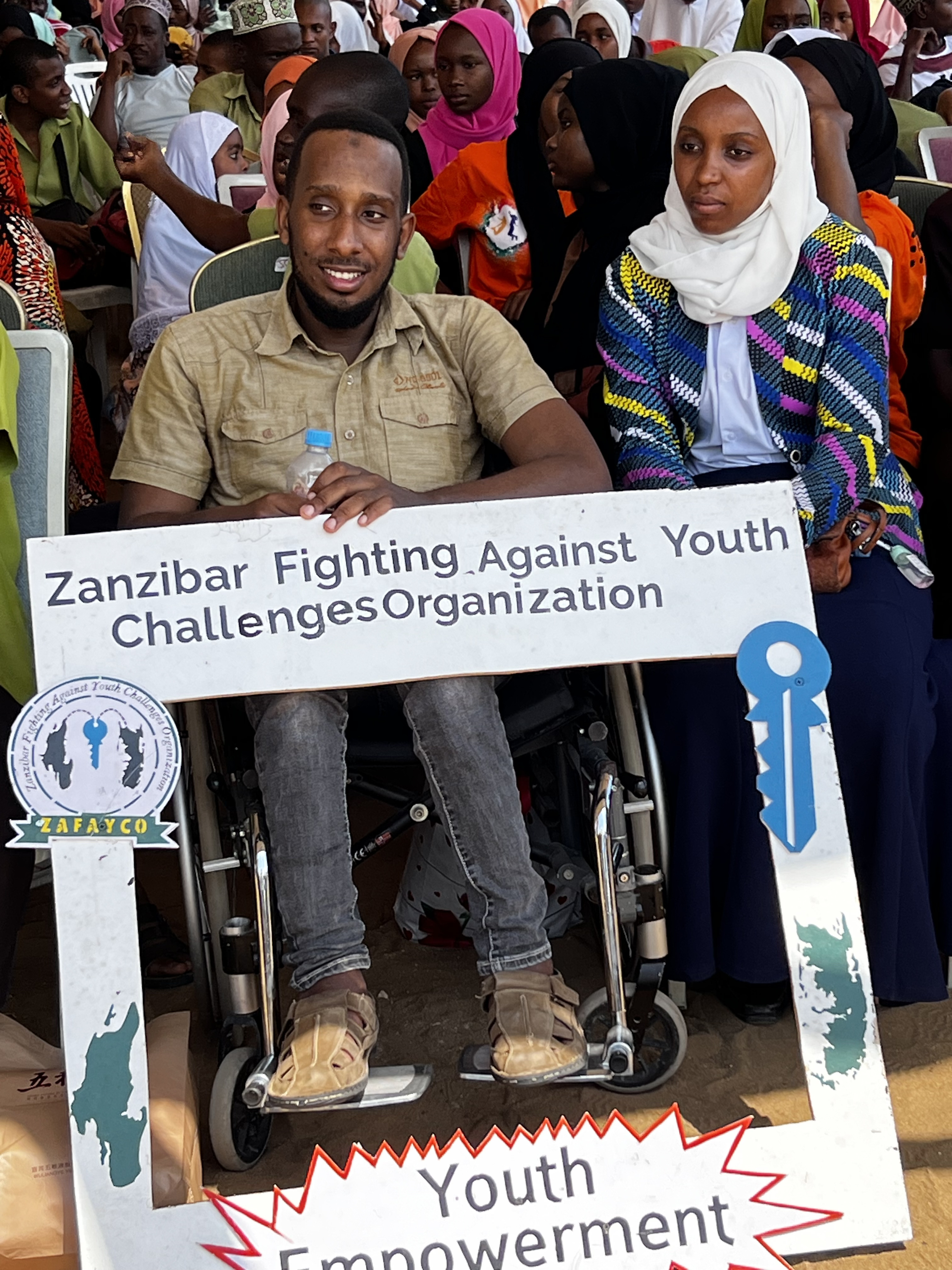
“Through participation in UNFPA youth programmes I recognize that young people across the United Republic of Tanzania are determined, resourceful and engaged in their communities. We can also see that young people in Tanzania are innovators, changemakers, entrepreneurs and leaders. Youth are taking action to address development challenges, to benefit all generations”. Said Mark Bryan Schreiner, UNFPA Representative in the United Republic of Tanzania.
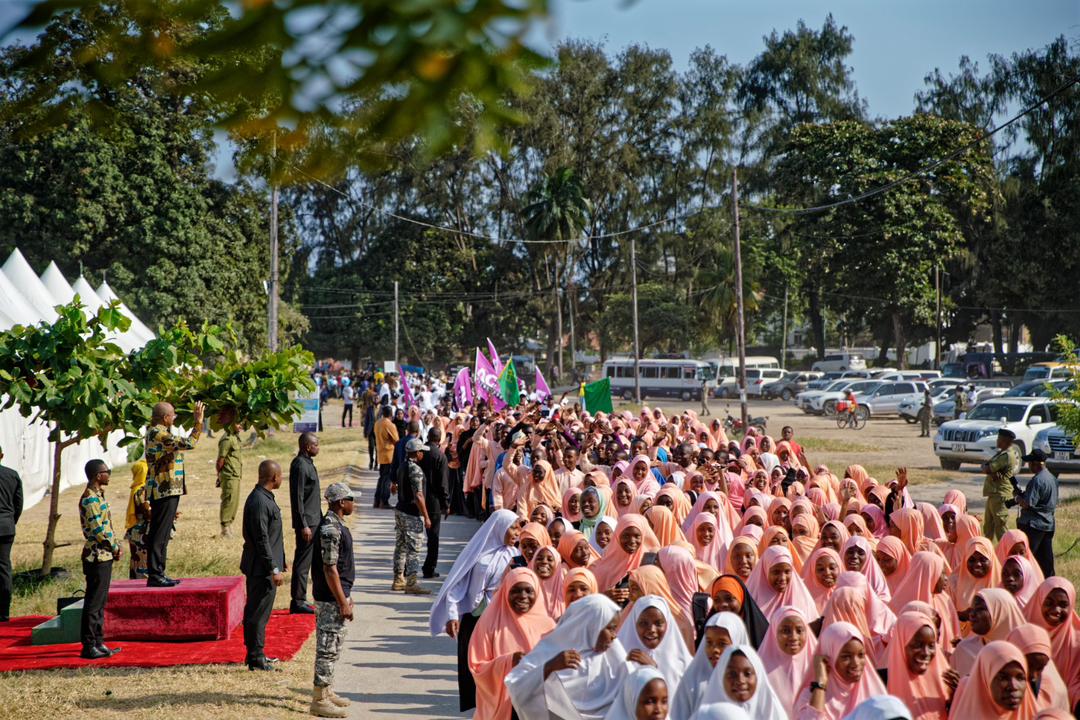
On 17 December 1999, in its resolution 54/120, the UN General Assembly endorsed the recommendation made by the World Conference of Ministers Responsible for Youth (Lisbon, 8-12 August 1998) calling for 12 August to be declared International Youth Day. The Day is usually commemorated every year to bring youth issues to the attention of the international community and celebrate the potential of youth as partners in today’s global society. Like other international celebrations the day aims to educate the general public on issues of concern, to mobilise political will and resources to address global problems, and to celebrate and reinforce achievements of humanity and it is embraced as a powerful advocacy tool. It also offers actors the opportunity to organise activities related to the theme of the day. Organisations and offices of the United Nations system, and most importantly, governments, civil society, the public and private sectors, schools, universities and, more generally, citizens, make an international day a springboard for awareness-raising actions.
For Media queries and further information, please contact:
Warren Bright, UNFPA Tanzania Communications Analyst, Mobile: +255 764 43 44 45, Email: bwarren@unfpa.org

